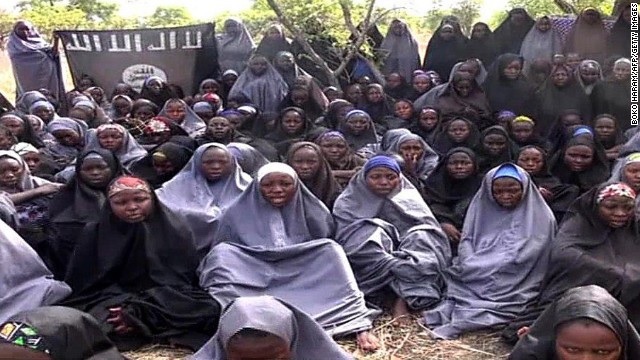No fewer than 61 Chibok girls abducted in April 2014 had been married to Boko Haram militants while three others died during childbirth. Eight of the over 200 abducted Chibok schoolgirls also died during Nigerian air force strikes while one other died due to an unknown cause.
This is as the 21 Chibok schoolgirls who recently regained their freedom after more than two years of captivity in the hands of Boko Haram terrorists have disclosed that they were not abused or raped during the period of their captivity in Sambisa forest in Borno State.
This is contrary to the general perception by human rights groups that most of the girls kidnapped by the Islamist militant group have been used as sex slaves.
A confidential report purportedly prepared for President Muhammadu Buhari after two weeks of profiling and debriefing of the freed girls by security operatives indicated that the militants treated them well while they were held captive.
The girls, who were released last month after Nigeria, supported by Switzerland and the International Committee of the Red Cross brokered a deal, are now being held in a secret location in Abuja where they have been undergoing psychological assessment and rehabilitation.
According to the secret report, heath workers involved in the screening have confirmed that the girls were not sexually abused while in captivity and that they all tested negative for sexually transmitted diseases.
“The girls said the Boko Haram men always assured them that they would eventually go back home to their families, and were careful about what they said around the girls and how they treated them,” said the source, who declined to be named.
“They had been fed well and regularly, until the military cut off Boko Haram supplies,” a source told Thomas Reuters Foundation. The daily routine for the girls, who were moved in captivity between Gwoza and the Sambisa forest, a Boko Haram stronghold, involved personal time in the morning followed by Koranic teaching and cooking meals, the report said.
Most of the girls said they were held in makeshift dwellings made of zinc sheets in Sambisa, while those who were married lived with their militant husbands in camps across the forest.
The girls said that while the Boko Haram militants advised them to marry and convert to Islam, they were not forced into doing so, according to the report.
“The girls said that those of them who did not agree to marry were used as house girls (servants),” the source said. According to the source, the girls recognised almost all the faces of Boko Haram members on a government most-wanted list, but did not know the militants’ names and never saw the Islamist group’s established figurehead, Abubakar Shekau.
The first of the Chibok girls to be released by Boko Haram, Amina Ali, was freed in May. Ali has since been held in a house in Abuja for what the state has called a “restoration process”.
She said in August that she “just wanted to go home”. Another Chibok girl and her 10-month-old son were discovered by troops days ago while they were screening escapees from Boko Haram’s base in the Sambisa forest.














No comments :
Post a Comment